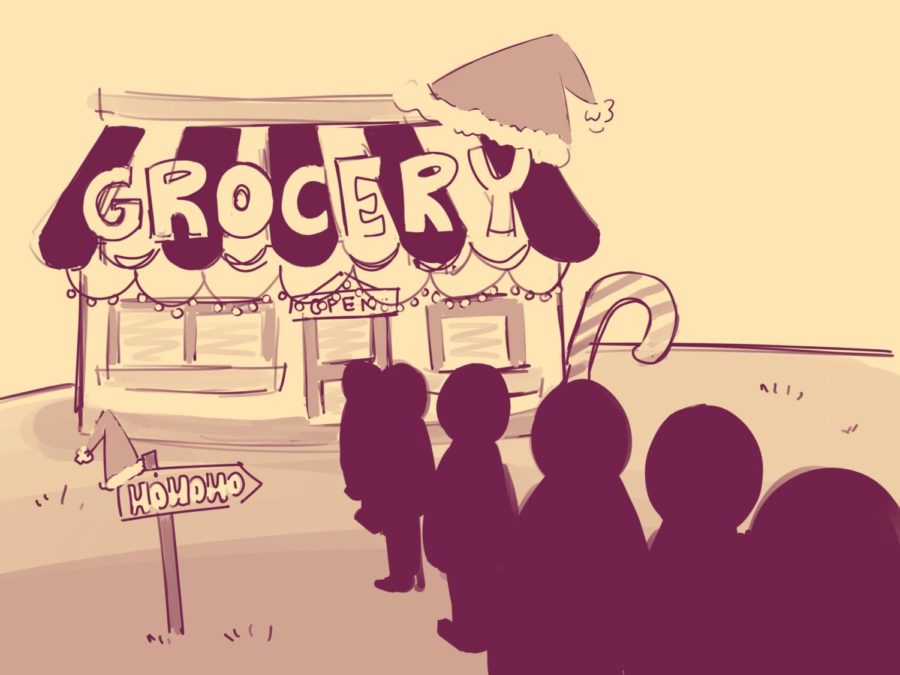What the commercialization of the holiday season means
Carina
In recent times, the commercialization of the holiday season has increased to exceptionally high amounts, as seen by the increasing amounts of ads and deals put out by stores that people rush to buy.
December 23, 2021
From the formalization of Santa Claus to Macy’s Thanksgiving Day Parade, Christmas in America feels like it’s always been nothing more than a matter of Eurocentric corporate interest. But when traced back to its origins, Christmas was the spirit of holiday cheer that it tries so hard to be today. Introduced amidst Puritan condemnation of secular holidays, the customs associated with common-day Christmas were brought over gradually by other European settlers—St. Nicholas from New Amsterdam, trees from Germany, gift-giving from ancient Roman tradition.
Today, however, a lot of corporations use Christmas as an excuse to make money. Even as far back as in 1983, The New York Times published an article talking about how the large amount of business present during the holiday season had massive economic implications. In 2021, people spent $8.9 billion online on Black Friday, according to the New York Post. Over the holiday season, according to CNBC, the amount of advertising done on social media platforms also increased.
While the increased amount of money spent by people during the holiday season (the months of November-December, specifically) has a positive impact on the economy, there are some drawbacks. With Christmas music being played in lots of places since even October, the feeling of Christmas is stretched out, which causes the holiday to be less significant.
Additionally, advertising done by retailers such as Lowe’s does little to persuade people to do shopping, according to a survey done by MoneySavingExpert.com. Therefore, it may not even be necessary for companies to even do the excessive advertising that they do.
The opinion that Christmas being commercialized isn’t a big problem is shared by a few people. Dr. Ruth McClelland-Nugent, associate professor of history in the Katherine Reese Pamplin College of Arts, Humanities and Social Sciences at Augusta University, said that the main reason that Christmas became popular in the first place was because of its commercialization.
“It’s ironic that today we talk about Christmas being too commercial,” McClelland-Nugent said in an article published on Augusta University’s Jagwire. “The popularization of Christmas in the United States begins with advertising.”
However, according to an article from The Daily Targum, “First and foremost, it completely dilutes the original intention of the holiday’s origin, and this not only applies to Christmas, but also to every holiday that has been rampantly commercialized.”
Therefore, the fact that the holiday season (which occurs from October to December of every year) is commercialized dilutes the spirit and the meaning of the holiday season, as cheesy as that sounds, as told to us all throughout our childhood.





